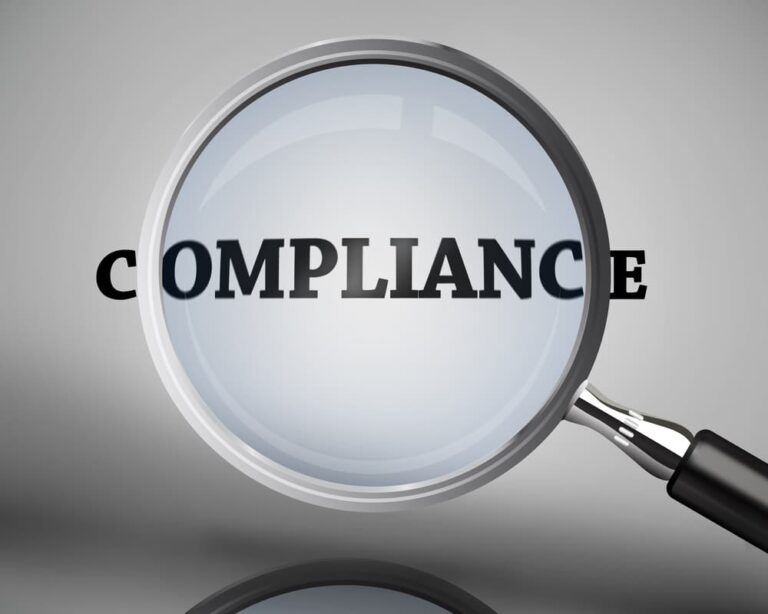Compliance is a bit like flossing … you may not see immediate consequences from letting it slide, but the long-term repercussions ultimately reveal themselves.
Lax compliance protocols increase the risk that your small-to-medium size business runs afoul of local, state, and/or federal regulations.
For most business owners, compliance violations are more painful than the sound of any dentist’s drill.
“Compliance should be at the crux of an organization’s policies and procedures. When companies disregard the compliance component while establishing corporate regulations, they risk needlessly incurring penalties and retention, both of which are costly to their finances and reputation,” writes Tech Funnel.
Tech Funnel says non-compliance can result in:
- Financial losses
- Security breaches
- License revocations
- Business disruptions
- Poor employee morale
- Trust erosion
- Tarnished Reputation
December is a great time to make sure your company has a compliance checklist in place.
HR Compliance Checklist: Staying Out of Trouble
Checklists are great tools for keeping you out of trouble.
Think of the extensive checklists that NASA, and nowadays private firms like Blue Origin, go through before blasting off with human and precious cargo.
While bigger entities can afford all the compliance bells-and-whistles available, smaller operations still need checklists – you wouldn’t jump out of plane on a skydiving adventure without checking off some important items (Parachute? Check!)
Compliance checklists for your business can focus on a few key items or can run for pages. Each business will have its own unique needs when compiling a compliance checklist depending on industry, location, company size, and so on.
“Focus first on any practice that can harm the business if it’s not done correctly, Priscilla Tomestic, HR compliance manager for a branch office of Aspen Air Conditioning in Boca Raton, Fla tells the Society for Human Resource Management (SHRM).
SHRM says to keep out of trouble look for these compliance hot button issues for your checklist:
- Most lawsuits can be traced to issues related to hiring, performance management, employee discipline or termination.
- Misclassification of exempt and nonexempt jobs.
- Inadequately maintained personnel files.
- Prohibited attendance policies.
- Inaccurate wage and hour or time records.
- Form I-9 errors.
- Outdated federal and state labor and employment law posters.
- Insufficient record retention.
Crafting Your Company’s HR Compliance Checklist
Before crafting your company’s HR compliance checklist, you will need to gather all the regulatory sources your business is subject to.
This list could include, in addition to local, state, and federal regulations, the following:
- Affordable Care Act (ACA)
- Americans with Disabilities Act (ADA)
- Equal Employee Opportunity Commission (EEOC)
- Fair Labor Standards Act (FLSA)
- Family and Medical Leave Act (FMLA)
- Occupational Safety and Health Act (OSHA)
Also include any compliance issues required by administrators, managers, and payroll processors, keeping in mind any professional employer organizations (PEOs) you outsource HR services to.
Keep your 2021 HR compliance checklist organized by breaking it down into categories, for example:
- Benefits
o Workers’ compensation
o Unemployment insurance
o Disability insurance
o Health insurance
o Consolidated Omnibus Budget Reconciliation Act (COBRA) benefits
o Leaves of absence
- Hiring
o Compliance with EEOC
o New hires must complete Form I-9 to verify employment eligibility. Some states now also require E-Verify
o Follow state laws for previous salary or criminal record questions for applicants
o Ensure that templates are being used for non-discriminatory job descriptions, candidate interview scripts, standardized interview scorecards, and hiring evaluations
o Up-to-date employee handbook and workplace posters
- Payroll
o Wage and hour laws — which govern minimum wage, overtime pay, and recordkeeping practices, are being followed.
o Equal pay laws
o Track all time for onsite and remote employees, don’t allow off-the-clock work
o Pay overtime to non-exempt employees
o Track FMLA, COVID leave and PTO separately
- Recordkeeping
o Follow privacy laws and data security best practices for personnel file.
o Make sure independent contractors meet all requirements set out by the IRS
o Keep three years of payroll records and at least two years of timesheets, wage rate tables, work schedules, and paycheck records showing any deductions or extra income
- Taxes
o Employment taxes
o Franchise tax
o Gross receipts tax
o Income taxes
o Sales tax
o State taxes
Contact Employer flexible today if we can help you in any way and make sure your compliance is up to date.






